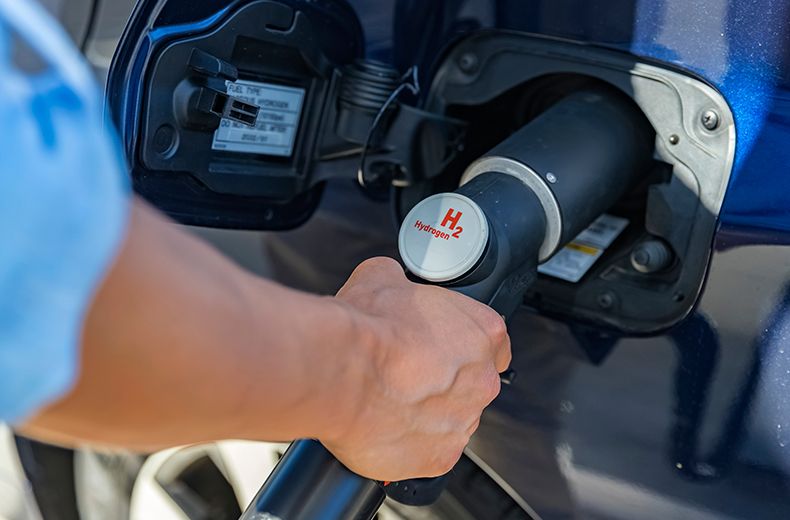As the government shifts the timeframes on the end of combustion engines to meet zero-carbon targets, motorists are left to wonder about the greener transport options available.
In recent years, electric car registrations have continued to rise and a new, alternatively-fuelled vehicle could prove just as popular.
Hydrogen cars, or hydrogen fuel cell cars, were first introduced by Toyota in 2014 and are making a strong case for changing the way we power our travel.
Could they be the future of the motoring industry?
Hydrogen cars
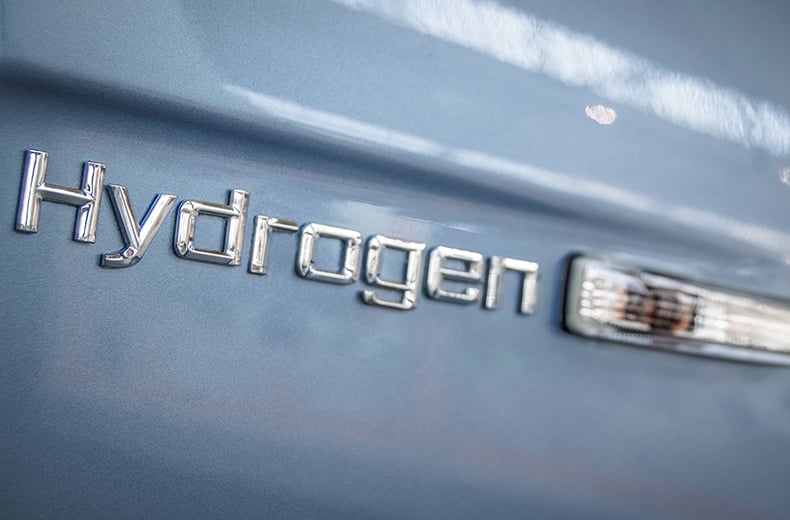
Hydrogen cars are powered by electricity they produce internally through chemical reactions between hydrogen and oxygen.
The only tailpipe emissions are water since the by-products of the chemical reaction which powers the hydrogen fuel cell are just heat and water.
The electricity generated either powers the car directly, or charges a battery which stores the energy until it’s needed. This traction battery is significantly smaller and lighter than the battery of a fully electric car.
The hydrogen fuel is stored in a high-pressure tank and can be refilled in much the same way as petrol and diesel.
These cars are sometimes known as “Fuel Cell Electric Vehicles” (FCEVs).
How and where to fill up a hydrogen car
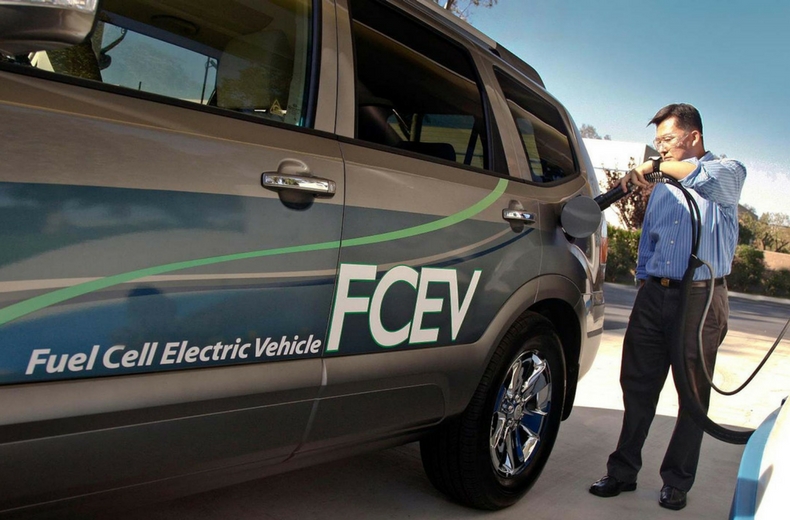
Hydrogen cars’ high-pressure tanks can be refilled in around five minutes with a fuel pump at a filling station.
Despite multiple announcements of millions of pounds of funding over the last five years to help the growth of the industry, there are currently only 12 stations in the UK.
The current price for filling up is between £12 - £16 per kilo, so based on the Hyundai Nexo’s 6.33kg tank, it would cost between up to £100 to refuel.

RAC Breakdown Cover from £7 a month*
*£7 a month for new single vehicle Basic cover. Comparison based on www.theaa.com closest equivalent cover as at 19/04/24.

How is hydrogen produced?
Currently, the vast majority of hydrogen production still uses natural gases. However, the government is investing heavily in greener alternatives like CO2 capture technology.
Electrolysis, the process of splitting water into hydrogen and oxygen, is a more eco-friendly option when using renewable electricity.
In February 2020, the government announced plans to move away from natural gas-based hydrogen production confirming the funding of Europe’s first large scale, low-carbon hydrogen plants.1
Hydrogen car buyers guide
Pros
- Cheaper tax
Like electric and plug-in hybrids, hydrogen fuel cell cars are classed as ‘ultra low emission vehicles’ (ULEVs) and benefit from the same tax advantages as other ULEVs.
As they emit no CO2, owners won’t have to pay any vehicle excise duty (VED, commonly known as road tax). That’s aside from a £310 annual supplement for cars over £40,000 for the first five years.3
- Exempt from charges
They’ll also be exempt from the London Congestion Charge and other clean air zones like those in Birmingham and Leeds.
- Kinder to the environment
As well as the economic benefits, drivers of hydrogen-powered cars will be doing their bit for the environment, as there are no harmful tailpipe emissions.
Although hydrogen is still mostly produced using fossil fuels, it generally produces fewer harmful emissions than burning petrol or diesel and it can be made using renewable electricity via electrolysis.
- Longer range
While finding somewhere to fill up might be an issue today, most hydrogen cars are capable of covering 300 miles from a tank, so won’t suffer the same ‘range anxiety’ many electric car drivers suffer from.
- Speedy refuelling
A hydrogen tank can be refilled in around five minutes.
Cons
- Refill stations
Currently, hydrogen is difficult to find, with just a handful of filling stations open at the time of writing.
More are planned and the government has created a £23 million fund to boost the take-up of hydrogen vehicles and improve the infrastructure that supports them, so it might not necessarily always be a problem.
- Running costs
They’re also more expensive than petrol or diesel.
Sold by the kilogram, with current prices around £10 - £15 per kilo, it’ll cost between £63 - £95 to refuel a Hyundai Nexo’s 6.33kg tank.
With consumption of 0.95kg per 100km (62 miles) the Nexo will cost around £11.40 to cover 100km (62 miles). While an equivalent diesel will cost around £6.72 to cover the same distance. An electric car such as the Hyundai Kona, will cost around £3, at 15.5p per kWh.
- Purchase cost
If you want to buy a hydrogen car outright, it’ll cost considerably more than an equivalent petrol or diesel model, for example the Hyundai Nexo will set you back £66,000.
- Fuel tanks
Finally, hydrogen has to be compressed to fit into fuel tanks, so those tanks have to be extremely strong – which costs money and adds weight.
Some are also concerned about the flammable qualities of hydrogen.
It’s highly combustible, although so is petrol – and most of us don’t worry about driving around with an arguably less well-protected tank full of fuel underneath our car.
The EuroTunnel does not allow vehicles powered by flammable gas to use the shuttle between the UK and France.
However, Toyota claims that the Mirai’s hydrogen tank can absorb five times the crash-energy of steel.4
Hydrogen infrastructure challenges
The biggest issue with hydrogen power is the lack of infrastructure, but if no-one buys hydrogen-powered cars, that’s not going to change anytime soon.
Hydrogen filling stations are expensive to build, but the UK government and the EU are backing a drive to increase the number available.
Back in 2018 the Department for Transport awarded over £8 million in funding to a project aimed at improving access to hydrogen refuelling stations.5
Like the development of electric cars, hydrogen vehicles will get more advanced over time with the technology getting cheaper.
This will make fuel cell cars more appealing to a wider audience and will help them become more widespread.
Hydrogen cars available today
Manufacturers plan on releasing more hydrogen models in the near future, but for now, there are only a few on the market:
Toyota Mirai
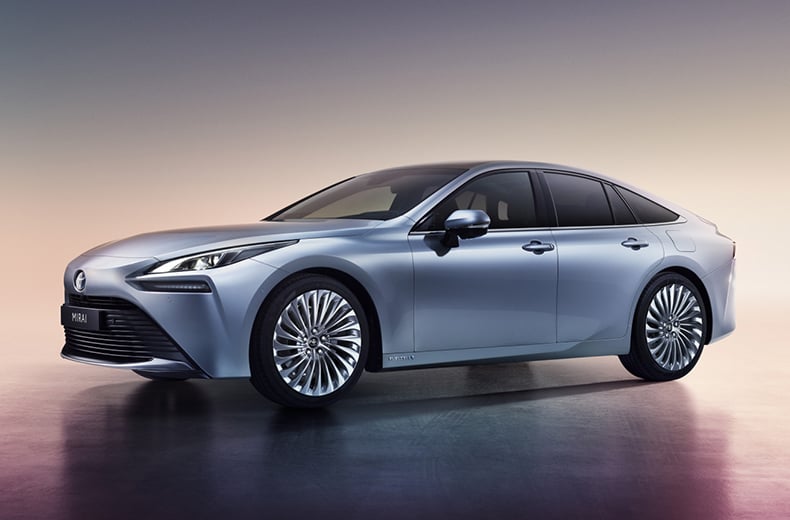
The second-generation Toyota Mirai debuted at the Tokyo Motor Show in 2019.
Its name translated from Japanese means “the future” and its manufacturer hopes it could be a sign of things to come.
They come with a price-tag of £65,000 for their premium model - and £50,000 for the standard model.
Read our full review of the Mirai.
Hyundai Nexo
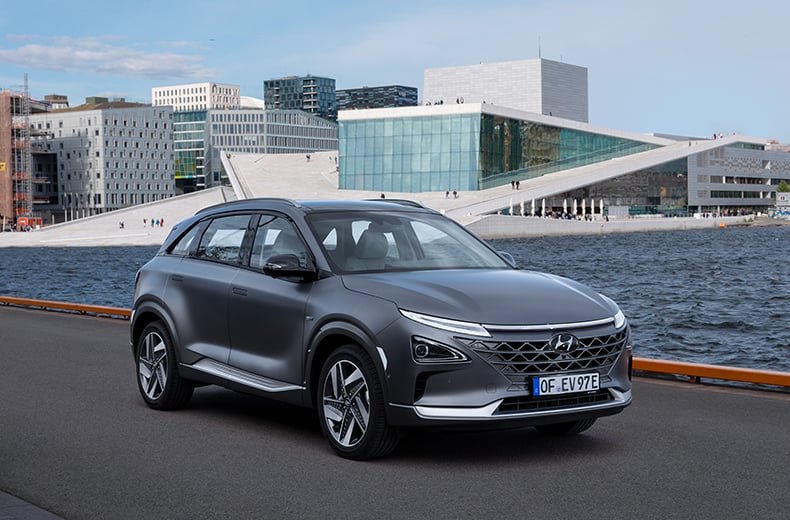
The Nexo is the first hydrogen-dedicated model from Hyundai and succeeds the Hyundai ix35 FCEV.
A range of 414 miles comes at the hefty price of £65,595 before the government’s ultra-low emission grant.
The South Korean manufacturers claim the vehicle can even purify air.
Read our full review of the Nexo.
The video below from Hyundai expains how the hydrogen engine works.
Riversimple Rasa
Made by a small company in Wales, the Rasa is a prototype hydrogen car with a range of 300 miles from just 1.5kg of hydrogen, giving it the equivalent of around 250mpg.6
Designed as an open source vehicle with the intention of helping other manufacturers produce fuel cell vehicles, the Rasa is a tiny two-seater with a top speed of 60mph.
Hydrogen cars vs electric cars
Environmental impact
Both electric and hydrogen powered cars emit no tailpipe gases, however, the production of the vehicles creates a lot of carbon emissions.
It’s estimated that a hydrogen vehicle will produce around 120g/km of CO2 over its lifetime when the manufacturing process is taken into account, while a battery electric vehicle (BEV) will deliver 124g/km of CO2 over its lifetime.
If hydrogen were to be produced by renewable energy this figure could be reduced significantly.
Cost of fuel
Sold by the kilogram, with current prices around £12 - £16 per kilo, it’ll cost up to £100 to refuel the hydrogen tank of a Hyundai Nexo.
With consumption of 0.95kg per 100km (62 miles) the Nexo will cost around £11.40 to cover 100km (62 miles).
Upfront cost
Despite battery rental costs of around £100 a month, battery electric vehicles (BEVs) have a huge advantage over hydrogen cars in terms of cost.
The affordable Renault Zoe will set you back around £29,995 brand new, while a Hyundai Nexo comes with a £68,000 price tag.
Asia vs the world?
As the only two major car brands developing hydrogen cars are based in Asia - it is hardly suprising that there has been more of an effort to develop the industry.
In contrast to Europe where there are 230 hydrogen stations, and a limited number of cars avalable, Asia is investing in the future of hydrogen as a fuel for vehicles across the continent.
The Japanese government have announced plans to have more than 800,000 hydrogen vehicles on roads by 2030 - and China aims to have more than a million by 2035.
As it is with most new innovations - early devleopers will get a foothold in the industry, advance the tech, and ultimately make it cheaper for the customer.
What does the future hold?
Some predict the UK grid will struggle to support the electric car overhaul and hydrogen could play a vital role in reaching net zero emissions by 2050.
The success of hydrogen fuel cell cars depends on a range of factors; the costs and green credentials of hydrogen production, infrastructure improvements including readily available refilling stations, and the fuel cells becoming cheaper.
And with a recent report stating that the sales of battery electric cars (BEVS) are on the rise across Europe and according to the annual Global Electric Vehicle Outlook, more are sold each week now than in the whole of 2012 - is there a future for hydrogen vehicles?
So, are you convinced? Let us know what you think of these vehicles in the comments below.
3 https://www.gov.uk/government/publications/vehicle-excise-duty/vehicle-excise-duty
4 https://www.toyota.co.uk/new-cars/new-mirai/the-facts
5 https://www.gov.uk/government/news/new-greener-police-cars-to-run-on-hydrogen
6 https://www.riversimple.com/faqs-the-riversimple-movement/
Get 30 driving tips that will save you money
Running a car isn’t cheap, but there are some easy things you can do to keep your costs down. Get these tips and more useful driving articles sent straight to your inbox now.



